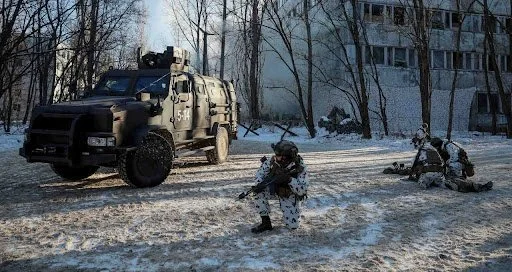Latin America Faces Economic Impact of Russian-Ukrainian War
President Vladimir Putin addresses the nation regarding the military operation against Ukraine. Photo: Aljazeera
If the world faces rain, Latin America is faced with a torrential storm. Following Russian President Vladimir Putin’s announcement of a “special military operation” against Ukraine on Feb. 24, the continent has already seen a rise in the dollar’s value and the price of commodities such as oil, wheat, soybeans and copper.
These are the immediate effects of Putin's war on Ukraine, and the general state of uncertainty could further aggravate already high levels of poverty. According to Carlos Aquino, director of the Asia-Pacific Department at Universidade de San Marcos in Lima, Peru, the impact of the Russian-Ukrainian conflict "will not be the same for everyone in Latin America."
Countries in Central America such as Ecuador and Guatemala will face critical impacts on their exports. Ecuador is already seeing the first losses provoked by the conflict and estimates it will lose $2.4 million per day due its current inability to export goods to Ukraine. However, the biggest concern lies with the Russian market, which in 2021 imported $1 billion worth of goods from Ecuador, making it Ecuador’s third most important destination for domestic sales. As for Guatemala, its international trade with Russia and Ukraine will be interrupted due to the conflict and it is predicted to face a rise in transportation prices and eventually products prices as well.
The Russian and Ukrainian conflict has already killed more than 9,100 people and displaced 1 million individuals. Photo: Gleb Garanich / Reuters
Of all the Latin American countries, Brazil has the worst economic growth prospects for 2022, according to the last survey released by the Fundação Getulio Vargas (FGV). If the Russian-Ukrainian conflict continues, it could have a direct impact on Brazil’s GDP through this year. In addition to the impacts of rising oil prices on the Brazilian economy, the price of food products might rise since Russia and Ukraine are the world’s main producers of wheat.
In a contrasting scenario, the agribusiness sector in Argentina is predicted to generate $1.8 billion more than usual because of the war. Being an exporter of wheat, corn, soybeans and sunflower, the rise in prices of these products may substantially impact Argentina's agricultural revenues for 2022.
President Putin’s “special military operation” is considered to be the largest interstate aggression in Europe since World War II. Oil prices briefly rose above $100 a barrel for the first time since 2014, while European natural gas rose 62 percent. With the declaration of attack, the world, still gradually recovering from the effects of the pandemic, was again faced with instability in political and economic spheres.
Even miles away, the incidence of war creates a domino effect that will impact states still reconstructing their economies after COVID-19. Latin American countries are especially prone to instability if the war continues.


